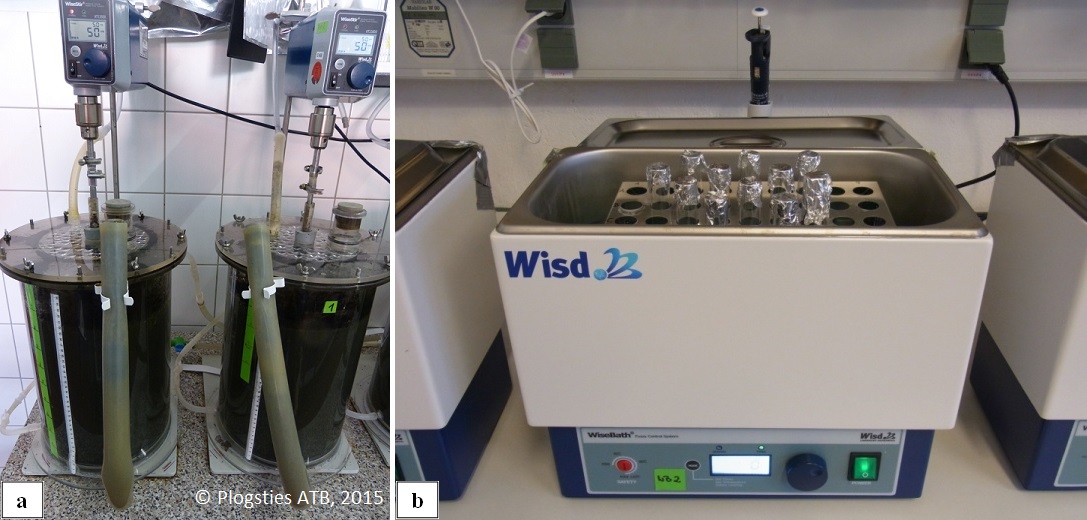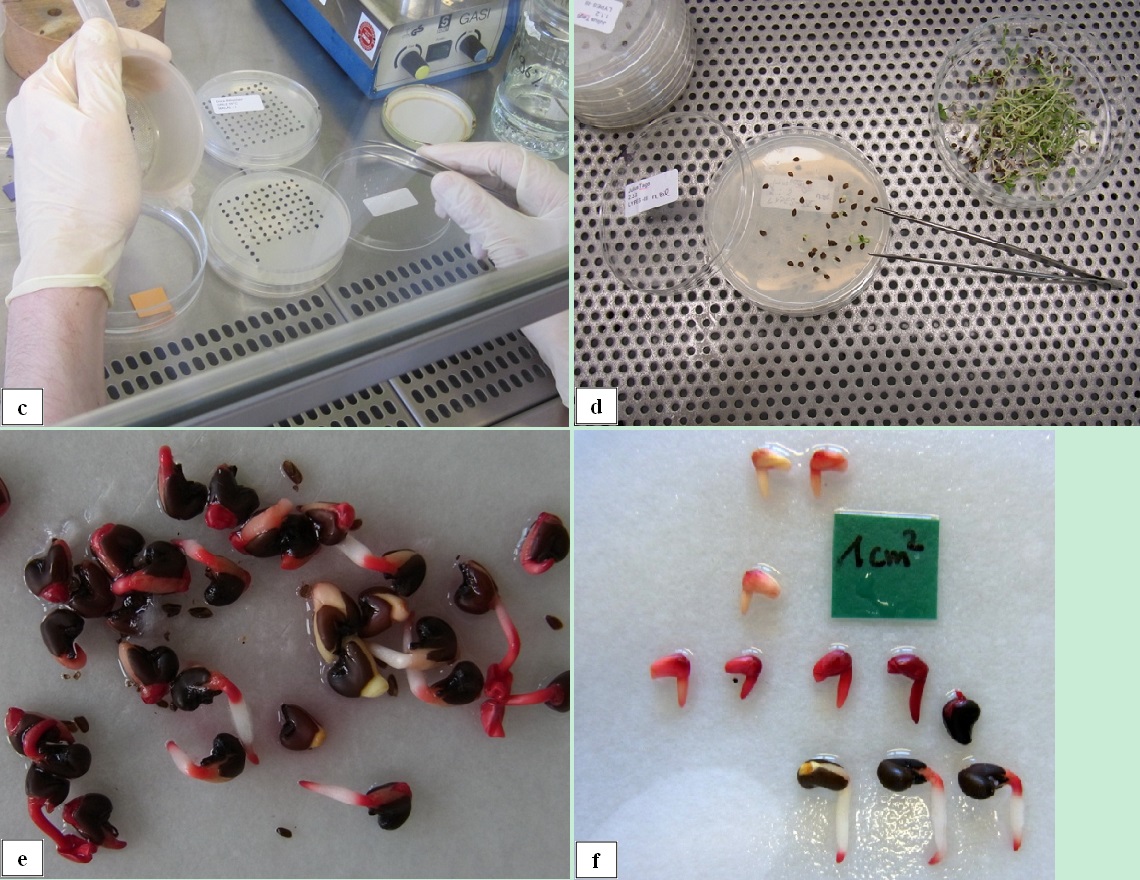Fate of wild-flowering mixtures in the Biogas chain – Risk of contamination and survival dependent on process parameters
Maize is one of the most important energy crops grown for biogas production. However, growing maize monocultures causes ecological problems, e.g. monotonous landscapes, soil degradation, and spread of pests. One approach to create an ecologically more diverse agricultural landscape is the cultivation of wild-flowering mixtures adjacent to energy maize fields. The wild-flowering mixtures are supposed to increase biodiversity in maize fields and are reported to be suitable for anaerobic digestion in biogas plants.
Digestate, the leftover after anaerobic digestion, is usually returned to the field as a fertilizer. Any pest or plant seeds that survive anaerobic digestion are returned to the field with the digestate and can cause problems, in particular if they represent invasive or non-indigenous species. Plant seeds can differ tremendously in their ability to survive the extreme conditions in biogas plants depending on a variety of seed characteristics, e.g., dormancy mechanisms.
In this project, we examine the survival of plant seeds from a commercially available wild-flowering mixture during different steps of the biogas chain starting from ensiling and ending at the storage of the digestate.
Methods
Methods to investigate the survival probability of plant seeds in the biogas chain include continuously stirred fermenters for anaerobic digestion at laboratory scale (a) and waterbaths (b) to check for the effects of single process parameters, e.g., temperature.
After treatment in the biogas chain (c) the seeds are analyzed for germination rates (d) and seed viability via TTC test (e, f).
Project leader; Bärbel Gerowitt
Funding agency; BMEL, FNR
Project duration; 2014-2017
Publications
Hahn,J., Westerman,P. R., de Mol, F., Heiermann, M., Gerowitt, B. (2022) Viability of Wildflower Seeds After Mesophilic Anaerobic Digestion in Lab-Scale Biogas Reactors. Frontiers in Plant Science13, 942346.
Hahn J, de Mol F, Müller J (2021) Ensiling Reduces Seed Viability: Implications for Weed Management. Frontiers in Agronomy 3:708851, 1-13.
Müller J, Hahn J (2020) Ensilability of biomass from effloresced flower strips as co-substrate in bioenergy production. Frontiers in Bioengineering and Biotechnology 8:14.
Hahn J, Müller J, Westerman P R, Gerowitt B (2019) Weed and wildflower seeds in biogas plants - inactivation of seeds during ensiling. Botanikertagung 2019, 71.
Hahn J, Parzych D, Schulz J, Westerman PR, Gerowitt B (2018) Wildpflanzen-Samen in der Biogas-Anlage: Screening des Überlebensrisikos verschiedener Arten. Julius-Kühn-Archiv 458, 41-46.
Hahn J, Westerman, PR, Heiermann M, Gerowitt B (2018) Survival of wildflower seeds at 42°C as proxy for survival probability in biogas reactors. Book of Abstracts — 18th European Weed Research Society Symposium, 137.
Hahn J, Parzych D, Westerman PR, Heiermann M, Gerowitt B (2016) Die Bedeutung der Temperatur für die Inaktivierung von Samen im Biogas-Reaktor. Julius-Kühn-Archiv 452, 123-129.
Hahn J, Westerman PR, Heiermann M, Gerowitt B (2016) Survival of seeds from species of a wild-flowering mixture in ensiling, anaerobic mesophilic digestion and storage of digestate at laboratory scale. Proceedings of the International Weed Science Congress, 247.
Hahn J, Westerman PR, Heiermann M, Gerowitt B (2015) Überleben von Wildpflanzensamen aus Blühmischungen in der anaeroben Vergärung der Biogas-Prozesskette. Tagungsband FNR/ KTBL-Biogaskongress ‘Biogas in der Landwirtschaft – Stand und Perspektiven‘, 438-439. EWRS-Symposium, 202.


